Marcia Sirota's Blog, page 4
August 14, 2023
The Prime Minister’s Divorce is None of My Business
I’m a loyal, proud Canadian. I love my country and feel immensely grateful for having been born here. I take an active interest in local and national politics and I always make sure to vote. But there’s one aspect of politics I’m supremely uninterested in, and that’s the personal lives of the politicians who serve us.
As long as what these politicians are doing in private is not affecting their ability to think or act rationally and as long as their actions aren’t illegal or corrupt, their personal lives are none of my business.
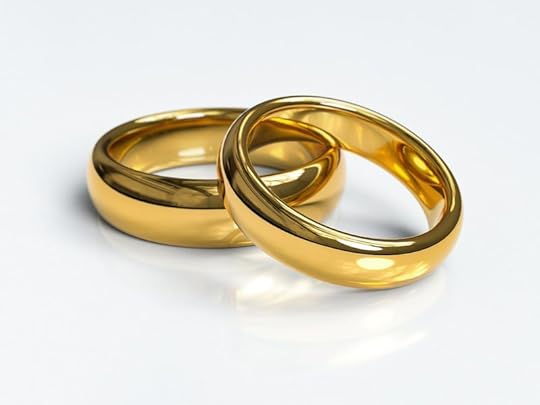 In the past divorce was not an option for a public figure
In the past divorce was not an option for a public figureIn the bad old days, when all the politicians were straight white men, they were expected to have supportive wives and loving children. Being the “head of a family” would mark them as stable individuals, capable of political leadership.
For this reason alone, politicians would remain in loveless marriages. Everyone in the family would be utterly miserable, but divorce was not an option, lest the politician be judged as untrustworthy and incompetent.
The view back then was that if you couldn’t “keep your marriage together,” how could you run a city, province, or country?
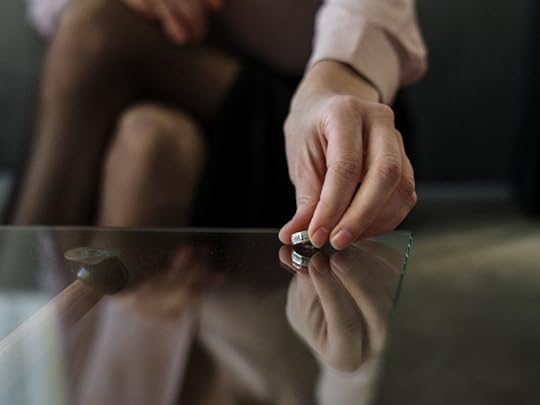 Societal views of divorce have changed for the better
Societal views of divorce have changed for the betterIn 2023, we know better. We understand today that the success or failure of one’s marriage has nothing to do with one’s ability to govern.
And these days, we are electing a much more diverse group of politicians whose marital status is a minor detail within the broader picture of who they are.
Marriage is a fascinating and mysterious institution. It’s hard to make a marriage work. Each person brings both their best and their worst traits to the relationship and with all the pressures of modern life, it’s not surprising that almost half of all marriages end in divorce.
They say that it’s harder for people to stay together these days, but maybe the truth is that it’s easier to separate.
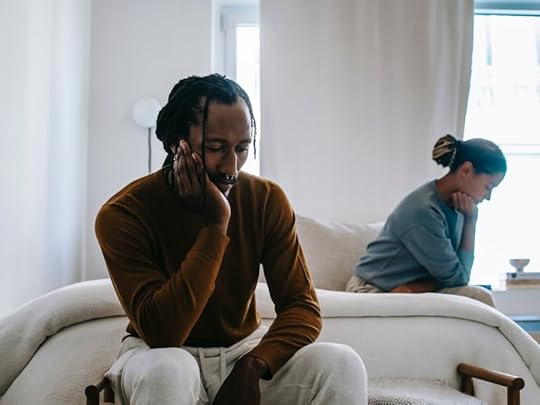 Divorce can be the healthier decision
Divorce can be the healthier decisionIn the bad old days, people would be forced to stay together because of religious or societal pressures or for financial reasons. Abused spouses would stay because they had nowhere else to go or because otherwise, they’d lose access to their children. Today, more people have the freedom to choose what’s best for them.
In the bad old days, people would often stay together “for the children,” but today, studies show that in families with parents who are overtly hostile toward one-other, the resultant trauma means that it’s better for the children if they separate.
There is far less stigma associated with divorce these days. With a fifty percent divorce rate, any other perspective would be absurd. People no longer risk losing their jobs or ruining their reputations over getting divorced. Although celebrities might be subject to salacious gossip over their marital breakdowns, people still buy their music and watch their shows. It might be interesting – at least to some of us – but it’s not seen as shameful. And thank goodness for that.
 Divorce is difficult for everyone, regardless of their role in society
Divorce is difficult for everyone, regardless of their role in societyI empathize with anyone who has to go through a divorce. It’s an absolutely miserable experience. I feel bad for the prime minister, Ms. Gregoire, and especially their children. But I don’t want to know what happened. It’s not my business why his marriage is ending. Just because he holds public office, it doesn’t negate his right to personal privacy.
Some far-right politicians might try to use the end of the Prime Minister’s marriage as political fodder but most reasonable politicians will avoid this tactic as they understand that it will only make them come across as brutish and sleazy.
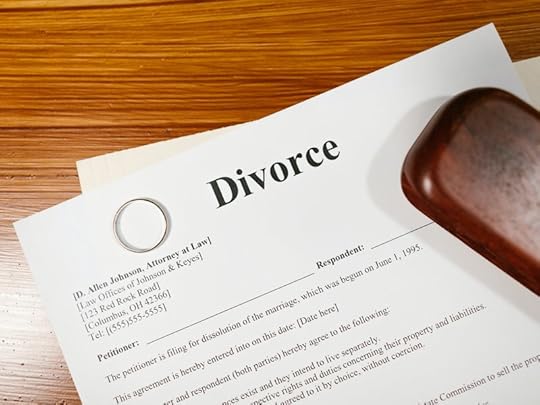 Even people in the public eye deserve respect and privacy
Even people in the public eye deserve respect and privacyI can’t imagine the stress of being in public office. I doubt it’s easy on a marriage. If a politician ends up getting divorced while in office, it strikes me as grossly unfair for anyone to rub it in their faces.
Justin Trudeau has written about the failure of his parent’s’ marriage and how hard he has tried to make his own marriage work. For this reason alone, he deserves our sympathy as well as a healthy dose of respect for his boundaries.
I’m much more interested in Mr. Trudeau’s policies than in his recent separation. Although it’s human nature to crane our necks and stare at the accident on the highway, we also have to remember what’s important and what isn’t; what is in the public domain and what is private. From where I stand, the prime minister’s divorce is none of my business.
______
Sign up here for my free bi-weekly wellness newsletter that brings you fresh, thought-provoking content.
Subscribe to my YouTube Channel where you’ll learn simple tips for taking the best care of yourself and your loved ones.
Tune in to my Ruthless Compassion Podcast where I go in-depth about topics like mental health, trauma, and loneliness.
if(window.strchfSettings === undefined) window.strchfSettings = {};window.strchfSettings.stats = {url: "https://marciasirotamd.storychief.io/... "The Prime Minister’s Divorce is None of My Business",siteId: "3591",id: "84fb0907-fb13-4676-8158-d29510e9b589"};(function(d, s, id) {var js, sjs = d.getElementsByTagName(s)[0];if (d.getElementById(id)) {window.strchf.update(); return;}js = d.createElement(s); js.id = id;js.src = "https://d37oebn0w9ir6a.cloudfront.net... = true;sjs.parentNode.insertBefore(js, sjs);}(document, 'script', 'storychief-jssdk'))
The post The Prime Minister’s Divorce is None of My Business appeared first on Marcia Sirota.
July 27, 2023
The Other Side of Ghosting
Lately, I’ve been thinking about ghosting. People on the receiving end have described the experience as bewildering, exasperating, and agonizing. The sudden, often inexplicable withdrawal of all communication feels unnecessarily cruel.
I empathize with these individuals and I recognize that in some instances, people engage in ghosting in order to be punitive, using a wall of silence as a way to punish a former friend or lover who they believe has hurt or offended them.
Ghosting can be cruel and unfair
This type of ghosting is nasty. The person receiving the silent treatment has no opportunity to understand or respond to what is happening. It can be frustrating, frightening, even devastating. I see it as a form of passive-aggressive abuse.
Other times, people engage in ghosting when they don’t have the guts to tell someone else how they feel or what they want. They’d rather flee and avoid a potentially uncomfortable confrontation. That’s cowardly; not to mention unfair to the person on the receiving end.
Whether punitive or cowardly, ghosting for these reasons is a lousy way of dealing with people. Still, I can’t help but consider both sides of a situation. I wonder, can ghosting ever be reasonable or justified? From my experience, it can be.
Ghosting can also be the right move at times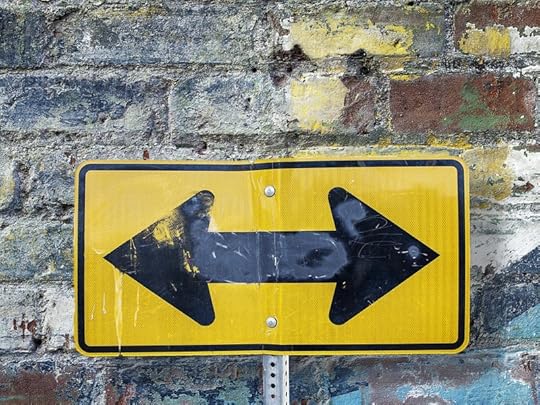
We all know that every interaction has two sides. Even when the ghosted person is feeling awful about it, the fact could be that the one doing the ghosting might be setting a much-needed boundary between the two of them.
The ghosted person might perceive the other person’s behaviour as cruel or unfair, even when it isn’t. For example, let’s say you’ve told a friend or lover that it’s over and the other person refuses to take “no” for an answer. They keep pestering you and hounding you and you’re feeling harassed and overwhelmed by their refusal to let go. At that point, your best option might be to put up a firm wall.
Let’s say you’ve been wounded or betrayed by a friend or a lover; maybe you feel seriously misunderstood, mistreated, or disrespected, or maybe you’re simply exhausted by the drama that’s been going on between you. At that point, your best recourse might be to eliminate all contact.
Cutting off contact to preserve wellbeing
In my experience, when someone in my life wouldn’t accept a clear request to give me space – space that I needed for my own wellbeing – my only option was to cut them off.
There have been times in my life when someone has done something so hurtful to me that I couldn’t get past it. It was a deal-breaker. And by hurting me so badly, the natural consequence was that this person forfeited their right to any further communication with me.
There have also been times when I realized that a relationship wasn’t working for me. It wasn’t making me happy, it was causing me stress. But the other person didn’t want to let go. I had no other option than to shut things down, permanently.
On the other hand, I’ve experienced my fair share of ghosting. I never liked it because often, I had no idea what was happening. I didn’t know if I had done something wrong, or if there had been a silly misunderstanding, or if the other person had simply changed their mind about me and couldn’t be bothered to formally end things. I’ve even checked the obituaries on a few occasions, wondering if the other person had met an untimely end. Still, I had to accept it, both out of respect for the other person’s decision and for my own good. Holding on wouldn’t have helped me one bit.
Closure and clarity aren’t always possible
Having been on both sides of the ghosting equation I understood at a certain point that things like closure, resolution, and clarity at the end of a relationship although lovely, aren’t always possible and in fact, aren’t necessary. It’s nice to be able to work things through but I can attest to the fact that letting go, moving on, and eventually being okay are all possible without these things.When I was doing the ghosting, I never did it as a way to punish anyone or avoid conflict, but only ever take care of myself. I never did it for frivolous reasons and I never regretted doing it either.
Some people are abusive and will bully and badger you so much that when it’s time to walk away, there would be no point in trying to explain anything to them. Some are vengeful and will use your words against you, so the best option is just to disappear.
Ghosting can hurt but we have to respect the other person’s decision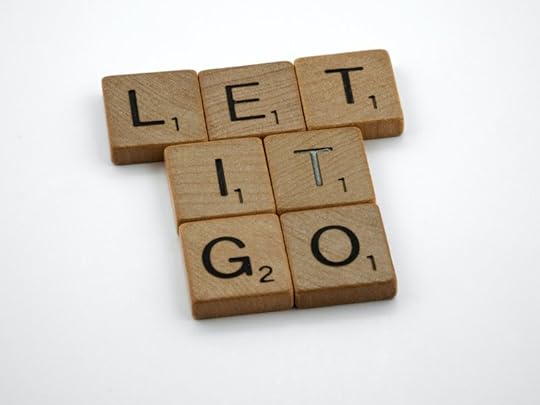
When I choose to end a relationship, I also get to choose how much I go into the reasons for why I’m leaving. Each relationship is unique and each ending has its own path. I don’t owe it to anyone to explain, justify, or gain their approval for my decision, and I don’t need them to be okay with it. I get to say as much or as little as I need to say on each occasion. I’m always respectful and I try not to be unkind but I also try not to abandon myself, either. Having said all that, I’d be a hypocrite if I begrudged others the same privilege.
The fact is that like it or not, ghosting happens and sometimes, there are good reasons for it. Whatever the reason, the person on the receiving end is generally better off accepting it, licking their wounds, and getting on with their lives.
______
Sign up here for my free bi-weekly wellness newsletter that brings you fresh, thought-provoking content.
Subscribe to my YouTube Channel where you’ll learn simple tips for taking the best care of yourself and your loved ones.
Tune in to my Ruthless Compassion Podcast where I go in-depth about topics like mental health, trauma, and loneliness.
if(window.strchfSettings === undefined) window.strchfSettings = {};window.strchfSettings.stats = {url: "https://marciasirotamd.storychief.io/... "The Other Side of Ghosting",siteId: "3591",id: "84fb0907-fb13-4676-8158-d29510e9b589"};(function(d, s, id) {var js, sjs = d.getElementsByTagName(s)[0];if (d.getElementById(id)) {window.strchf.update(); return;}js = d.createElement(s); js.id = id;js.src = "https://d37oebn0w9ir6a.cloudfront.net... = true;sjs.parentNode.insertBefore(js, sjs);}(document, 'script', 'storychief-jssdk'))
The post The Other Side of Ghosting appeared first on Marcia Sirota.
July 26, 2023
Getting Through Heartbreak
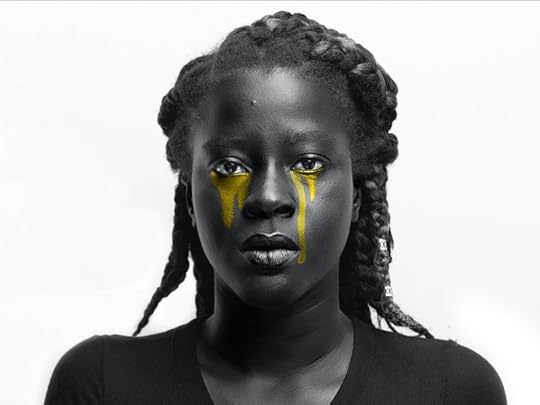 Photo by Lucxama Sylvain | Source: Pexels
Photo by Lucxama Sylvain | Source: PexelsHeartbreak is a particularly excruciating type of pain. That’s because it’s connected to the loss of what was most valuable in our lives.
Romantic love brings many things, including joy, meaning, direction, and comfort. Each person we love adds something unique to the mix; be it their particular take on life, the in-jokes we shared, the activities we enjoyed together, or the lifestyle we cherished.
Heartbreak can knock us flat Photo by Clara | Source: Pexels
Photo by Clara | Source: PexelsLosing the person we love means losing all that they brought to our lives. The loss is so enormous that we’re left reeling.
We stumble around in a mental fog, shocked and confused by the sudden absence of something we couldn’t imagine living without.
We finally emerge from our delirium, and that’s when the pain hits. It’s agonizing and relentless. We can’t ignore or deny it. It pounds against our hearts; a brutal rhythm hammering home how much we’ve lost. We’re knocked flat on our asses by the force of the blows.
But somehow, most of us manage to survive heartbreak. We grieve, we mourn, we cry, we rage, we question everything, we rail against the unfairness of it all. Then gradually, eventually, we get back on our feet. We let go. We learn big life lessons. We gain perspective. We find a modicum of peace. We resume our lives, a bit older and hopefully wiser. Or not.
When the grief of heartbreak persists Photo by Ismael Sánchez | Source: Pexels
Photo by Ismael Sánchez | Source: PexelsSometimes, for some people, it’s more challenging to grieve and let go. For these individuals, their grief is complicated. Perhaps it has something to do with the particular relationship; maybe it’s associated with something that happened in their past. These people struggle with the loss for longer than most. They wrestle with ambivalence. They suffer a lot. Some of them might benefit from counseling. Some are just on a different schedule than the rest of us.
Having had my own experience of heartbreak, I remember what a huge relief it was when I finally got to the other side. I couldn’t imagine spending a minute more feeling that awful. I chose to surrender to the experience. I accepted the end of the relationship and although I dabbled in the fantasy of a reconciliation, I refused to entertain any real hope for it. I couldn’t risk doing anything that might prolong the agony.
Allowing yourself time to grieve Photo by Designecologist | Source: Pexels
Photo by Designecologist | Source: PexelsInstead, I allowed myself to feel all the feelings. That enabled me to get through it as quickly as possible (although not quickly enough, by my reckoning). I understand that this was my journey and I can’t compare it to anyone else’s experience.
Heartbreak is inevitable. If you live long enough, you’ll encounter it. Maybe you already have. In my mind, the depth of the pain is a reflection of the beauty of the love that was shared.
My hope for all of us is that we get through it with the minimum of suffering and come out stronger and perhaps even smarter than before.
______
Sign up here for my free bi-weekly wellness newsletter that brings you fresh, thought-provoking content.
Subscribe to my YouTube Channel where you’ll learn simple tips for taking the best care of yourself and your loved ones.
Tune in to my Ruthless Compassion Podcast where I go in-depth about topics like mental health, trauma, and loneliness.
if(window.strchfSettings === undefined) window.strchfSettings = {};window.strchfSettings.stats = {url: "https://marciasirotamd.storychief.io/... "Getting Through Heartbreak",siteId: "3591",id: "84fb0907-fb13-4676-8158-d29510e9b589"};(function(d, s, id) {var js, sjs = d.getElementsByTagName(s)[0];if (d.getElementById(id)) {window.strchf.update(); return;}js = d.createElement(s); js.id = id;js.src = "https://d37oebn0w9ir6a.cloudfront.net... = true;sjs.parentNode.insertBefore(js, sjs);}(document, 'script', 'storychief-jssdk'))
The post Getting Through Heartbreak appeared first on Marcia Sirota.
Why People With Power Refuse to Share
It’s funny how some people who have lots and lots of power want more and more, and how some people who have a ton of privilege feel like they need a ton more.
Scarcity mindset
These two groups have something in common: a scarcity mindset. They’re driven by a profound sense of something lacking in their lives. They’re driven by the fear of not having “enough” even when they have so very much.
The problem with people who are dominated by this mentality is that the accumulation of more power or privilege cannot compensate for the emptiness they feel within.
They don’t realize that having “more” won’t fill them up. They don’t understand that what will actually satisfy is the experience of loving connection, not greed and the hoarding of power.
Abundance mindset
The opposite of the scarcity mindset is the abundance mindset. This is the notion that there is enough to go around if we all share. It suggests that the world has plenty enough resources if we stop hoarding and wasting so much of them.
People with the abundance mindset are happy to share what they have because they trust that they have enough. They are not afraid to lose their power or their privilege; in fact, they are happy for others to enjoy the same benefits.
People with a scarcity mindset compulsively pursue more power and more control, convinced that the problem is simply that they don’t have enough, and that once they get enough, they’ll be okay.
Many of these people will do everything they can to prevent others from having any power or privilege. This is done in the mistaken belief that sharing will somehow deprive them of what they can’t live without.
Lately, the people who are hoarding all the power and privilege are putting even more energy into attacking individuals and groups who have been asking for their fair share.
The power-hoarders are upping their game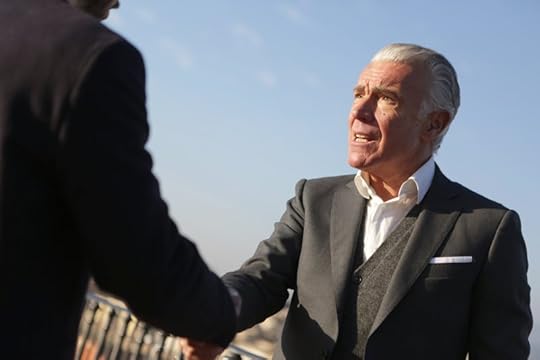
The power hoarders are trying to deprive Black people of the right to vote by engaging in blatant gerrymandering. They are dragging out tired old falsehoods about the LGBTQ+ community. They are depriving women of their bodily autonomy. They are trying to keep immigrants and refugees out of their country. They are rewriting school books with shocking revisionist lies.
The ones holding onto power are so enraged and outraged (panicked, really) by the thought of having to share what they’re hoarding that they’re going to frightening lengths to have more power than they need and claw back what little power the disenfranchised groups might hold.
Nobody wins when people and institutions hoard all the power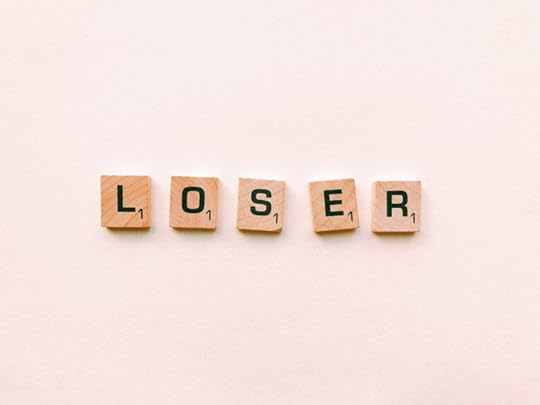
Nobody wins in this scenario except a tiny minority of the population. And not even them, because they will never feel happy or at peace by pursuing this false goal.
Those of us – privileged white folks – who fear the “other” and who vote for white supremacist politicians are ignoring the lessons of history. With any proto-fascist government, the rights and freedoms of all the people become increasingly curtailed. Essentially, we are choosing to elect those who will eventually remove our power and privileges as well.
History shows us that the world veers to the right during challenging times. We feel a sense of fear and of lack and we incorrectly perceive the “other” as competitors for the things we need.
We look to authoritarian leaders to protect our power and privilege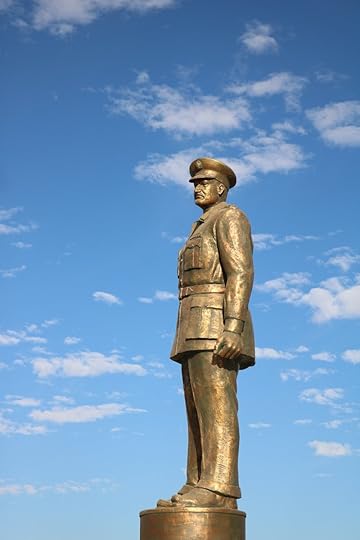
Then we look to authoritarian leaders to “protect” us from those “others” who might steal the few crumbs of power and privilege we possess.
What we don’t see is that these leaders don’t care about our welfare. They aren’t going to help us hold on to what we have. They certainly aren’t going to help us to have more.
The truth is that these leaders only care about themselves. They are narcissists and sociopaths who are selling us seductive lies in order to gain more power and influence for themselves. Once they’re in, we’ll be as oppressed as the groups we were competing with.
Moving from a scarcity to abundance mindset
The answer is to move beyond the scarcity mentality and recognize that there’s enough out there for us all to share. We don’t have to give up our privilege; we just need to accord others the same rights and opportunities.
We need to see the truth about the authoritarian leaders who preach a message of white supremacy. They will not bring more prosperity to our nations. They will not bring more peace. Look at any dictatorship. The ordinary citizens lose far more than they could imagine. These types of regimes bring repression and violence, even to those who put them in power.
Information is power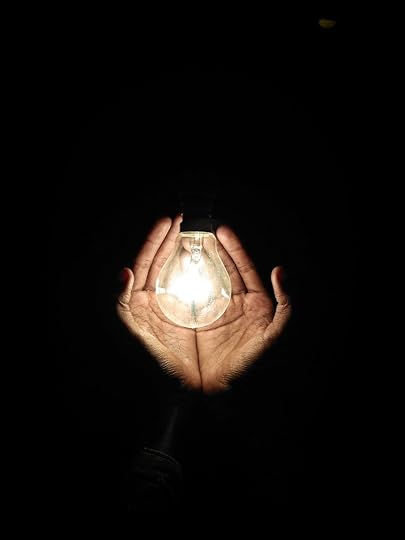
When you’re afraid, inform yourself. Information is power. Information makes you less scared. Learn about history. Learn about authoritarianism. Learn about how sharing always works better than grabbing and hoarding power. In societies where people share the wealth, the power, and the privileges, there is more harmony, a better quality of life, and better mental and physical well-being for everyone.
We all need to recognize that the scarcity mindset never leads to anything good. It leads to fear, anger, envy, and aggression, while an attitude of abundance leads to sharing, caring, kindness, compassion, and altruism.
What kind of society do we really want to live in? I know what I want. And it’s not based in fear.
______
Sign up here for my free bi-weekly wellness newsletter that brings you fresh, thought-provoking content.
Subscribe to my YouTube Channel where you’ll learn simple tips for taking the best care of yourself and your loved ones.
Tune in to my Ruthless Compassion Podcast where I go in-depth about topics like mental health, trauma, and loneliness.
Complete our Audience Listening Survey for a chance to win one of three cash prizes
if(window.strchfSettings === undefined) window.strchfSettings = {};window.strchfSettings.stats = {url: "https://marciasirotamd.storychief.io/... "Why People With Power Refuse to Share",siteId: "3591",id: "84fb0907-fb13-4676-8158-d29510e9b589"};(function(d, s, id) {var js, sjs = d.getElementsByTagName(s)[0];if (d.getElementById(id)) {window.strchf.update(); return;}js = d.createElement(s); js.id = id;js.src = "https://d37oebn0w9ir6a.cloudfront.net... = true;sjs.parentNode.insertBefore(js, sjs);}(document, 'script', 'storychief-jssdk'))
The post Why People With Power Refuse to Share appeared first on Marcia Sirota.
July 25, 2023
Why People With Power Refuse to Share

It’s funny how some people who have lots and lots of power want more and more, and how some people who have a ton of privilege feel like they need a ton more.
Scarcity mindset
These two groups have something in common: a scarcity mindset. They’re driven by a profound sense of something lacking in their lives. They’re driven by the fear of not having “enough” even when they have so very much.
The problem with people who are dominated by this mentality is that the accumulation of more power or privilege cannot compensate for the emptiness they feel within.
They don’t realize that having “more” won’t fill them up. They don’t understand that what will actually satisfy is the experience of loving connection, not greed and the hoarding of power.
Abundance mindset
The opposite of the scarcity mindset is the abundance mindset. This is the notion that there is enough to go around if we all share. It suggests that the world has plenty enough resources if we stop hoarding and wasting so much of them.
People with the abundance mindset are happy to share what they have because they trust that they have enough. They are not afraid to lose their power or their privilege; in fact, they are happy for others to enjoy the same benefits.
People with a scarcity mindset compulsively pursue more power and more control, convinced that the problem is simply that they don’t have enough, and that once they get enough, they’ll be okay.
Many of these people will do everything they can to prevent others from having any power or privilege. This is done in the mistaken belief that sharing will somehow deprive them of what they can’t live without.
Lately, the people who are hoarding all the power and privilege are putting even more energy into attacking individuals and groups who have been asking for their fair share.
The power-hoarders are upping their game
The power hoarders are trying to deprive Black people of the right to vote by engaging in blatant gerrymandering. They are dragging out tired old falsehoods about the LGBTQ+ community. They are depriving women of their bodily autonomy. They are trying to keep immigrants and refugees out of their country. They are rewriting school books with shocking revisionist lies.
The ones holding onto power are so enraged and outraged (panicked, really) by the thought of having to share what they’re hoarding that they’re going to frightening lengths to have more power than they need and claw back what little power the disenfranchised groups might hold.
Nobody wins when people and institutions hoard all the power
Nobody wins in this scenario except a tiny minority of the population. And not even them, because they will never feel happy or at peace by pursuing this false goal.
Those of us – privileged white folks – who fear the “other” and who vote for white supremacist politicians are ignoring the lessons of history. With any proto-fascist government, the rights and freedoms of all the people become increasingly curtailed. Essentially, we are choosing to elect those who will eventually remove our power and privileges as well.
History shows us that the world veers to the right during challenging times. We feel a sense of fear and of lack and we incorrectly perceive the “other” as competitors for the things we need.
We look to authoritarian leaders to protect our power and privilege
Then we look to authoritarian leaders to “protect” us from those “others” who might steal the few crumbs of power and privilege we possess.
What we don’t see is that these leaders don’t care about our welfare. They aren’t going to help us hold on to what we have. They certainly aren’t going to help us to have more.
The truth is that these leaders only care about themselves. They are narcissists and sociopaths who are selling us seductive lies in order to gain more power and influence for themselves. Once they’re in, we’ll be as oppressed as the groups we were competing with.
Moving from a scarcity to abundance mindset
The answer is to move beyond the scarcity mentality and recognize that there’s enough out there for us all to share. We don’t have to give up our privilege; we just need to accord others the same rights and opportunities.
We need to see the truth about the authoritarian leaders who preach a message of white supremacy. They will not bring more prosperity to our nations. They will not bring more peace. Look at any dictatorship. The ordinary citizens lose far more than they could imagine. These types of regimes bring repression and violence, even to those who put them in power.
Information is power
When you’re afraid, inform yourself. Information is power. Information makes you less scared. Learn about history. Learn about authoritarianism. Learn about how sharing always works better than grabbing and hoarding power. In societies where people share the wealth, the power, and the privileges, there is more harmony, a better quality of life, and better mental and physical well-being for everyone.
We all need to recognize that the scarcity mindset never leads to anything good. It leads to fear, anger, envy, and aggression, while an attitude of abundance leads to sharing, caring, kindness, compassion, and altruism.
What kind of society do we really want to live in? I know what I want. And it’s not based in fear.
______
Sign up here for my free bi-weekly wellness newsletter that brings you fresh, thought-provoking content.
Subscribe to my YouTube Channel where you’ll learn simple tips for taking the best care of yourself and your loved ones.
Tune in to my Ruthless Compassion Podcast where I go in-depth about topics like mental health, trauma, and loneliness.
Complete our Audience Listening Survey for a chance to win one of three cash prizes
if(window.strchfSettings === undefined) window.strchfSettings = {};window.strchfSettings.stats = {url: "https://marciasirotamd.storychief.io/... "Why People With Power Refuse to Share",siteId: "3591",id: "84fb0907-fb13-4676-8158-d29510e9b589"};(function(d, s, id) {var js, sjs = d.getElementsByTagName(s)[0];if (d.getElementById(id)) {window.strchf.update(); return;}js = d.createElement(s); js.id = id;js.src = "https://d37oebn0w9ir6a.cloudfront.net... = true;sjs.parentNode.insertBefore(js, sjs);}(document, 'script', 'storychief-jssdk'))
The post Why People With Power Refuse to Share appeared first on Marcia Sirota.
July 11, 2023
Getting Through Heartbreak
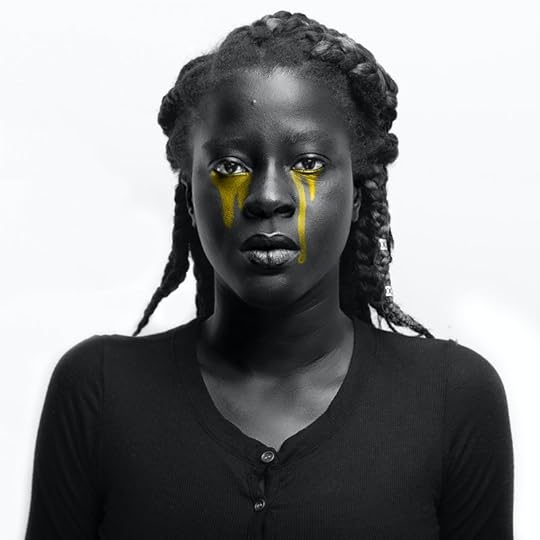 Photo by Lucxama Sylvain | Source: Pexels
Photo by Lucxama Sylvain | Source: PexelsHeartbreak is a particularly excruciating type of pain. That’s because it’s connected to the loss of what was most valuable in our lives.
Romantic love brings many things, including joy, meaning, direction, and comfort. Each person we love adds something unique to the mix; be it their particular take on life, the in-jokes we shared, the activities we enjoyed together, or the lifestyle we cherished.
Heartbreak can knock us flat Photo by Clara | Source: Pexels
Photo by Clara | Source: PexelsLosing the person we love means losing all that they brought to our lives. The loss is so enormous that we’re left reeling.
We stumble around in a mental fog, shocked and confused by the sudden absence of something we couldn’t imagine living without.
We finally emerge from our delirium, and that’s when the pain hits. It’s agonizing and relentless. We can’t ignore or deny it. It pounds against our hearts; a brutal rhythm hammering home how much we’ve lost. We’re knocked flat on our asses by the force of the blows.
But somehow, most of us manage to survive heartbreak. We grieve, we mourn, we cry, we rage, we question everything, we rail against the unfairness of it all. Then gradually, eventually, we get back on our feet. We let go. We learn big life lessons. We gain perspective. We find a modicum of peace. We resume our lives, a bit older and hopefully wiser. Or not.
When the grief of heartbreak persists Photo by Ismael Sánchez | Source: Pexels
Photo by Ismael Sánchez | Source: PexelsSometimes, for some people, it’s more challenging to grieve and let go. For these individuals, their grief is complicated. Perhaps it has something to do with the particular relationship; maybe it’s associated with something that happened in their past. These people struggle with the loss for longer than most. They wrestle with ambivalence. They suffer a lot. Some of them might benefit from counseling. Some are just on a different schedule than the rest of us.
Having had my own experience of heartbreak, I remember what a huge relief it was when I finally got to the other side. I couldn’t imagine spending a minute more feeling that awful. I chose to surrender to the experience. I accepted the end of the relationship and although I dabbled in the fantasy of a reconciliation, I refused to entertain any real hope for it. I couldn’t risk doing anything that might prolong the agony.
Allowing yourself time to grieve Photo by Designecologist | Source: Pexels
Photo by Designecologist | Source: PexelsInstead, I allowed myself to feel all the feelings. That enabled me to get through it as quickly as possible (although not quickly enough, by my reckoning). I understand that this was my journey and I can’t compare it to anyone else’s experience.
Heartbreak is inevitable. If you live long enough, you’ll encounter it. Maybe you already have. In my mind, the depth of the pain is a reflection of the beauty of the love that was shared.
My hope for all of us is that we get through it with the minimum of suffering and come out stronger and perhaps even smarter than before.
______
Sign up here for my free bi-weekly wellness newsletter that brings you fresh, thought-provoking content.
Subscribe to my YouTube Channel where you’ll learn simple tips for taking the best care of yourself and your loved ones.
Tune in to my Ruthless Compassion Podcast where I go in-depth about topics like mental health, trauma, and loneliness.
if(window.strchfSettings === undefined) window.strchfSettings = {};window.strchfSettings.stats = {url: "https://marciasirotamd.storychief.io/... "Getting Through Heartbreak",siteId: "3591",id: "84fb0907-fb13-4676-8158-d29510e9b589"};(function(d, s, id) {var js, sjs = d.getElementsByTagName(s)[0];if (d.getElementById(id)) {window.strchf.update(); return;}js = d.createElement(s); js.id = id;js.src = "https://d37oebn0w9ir6a.cloudfront.net... = true;sjs.parentNode.insertBefore(js, sjs);}(document, 'script', 'storychief-jssdk'))
The post Getting Through Heartbreak appeared first on Marcia Sirota.
June 30, 2023
Emotional Bravery is Stronger than Physical Courage
When we think about what it means to be brave, we often think about taking physical risks, but there’s another type of courage we can consider: emotional bravery.
Being brave this way means being open and vulnerable. It means allowing people to really see you, thereby risking rejection, misunderstanding, and disapproval.
 Good Vibes Be Positive Concept | Photographer: rawpixel.com | Copyright: Rawpixel Ltd.Emotional bravery is harder than physical courage
Good Vibes Be Positive Concept | Photographer: rawpixel.com | Copyright: Rawpixel Ltd.Emotional bravery is harder than physical courageFor many people, it’s a lot easier to be physically brave than it is to be emotionally courageous. They’d rather risk having a limb broken than having their heart broken.
This is probably due to the abundance of support for people who have been physically injured and the dearth of emotional support for people who are experiencing emotional pain.
It takes more courage to be vulnerable Photo by Liza Summer | Source: Pexels
Photo by Liza Summer | Source: PexelsThere’s also a tremendous stigma associated with emotional suffering. A grown man can whine and moan about having a head cold and nobody scoffs, but if he even mentions his emotional struggles, he’s more often than not looked at with scorn.
For that reason, it requires a double dose of emotional courage to be vulnerable. We need to brave public opinion at the same time as we’re taking our emotional risks.
The upside of being emotionally brave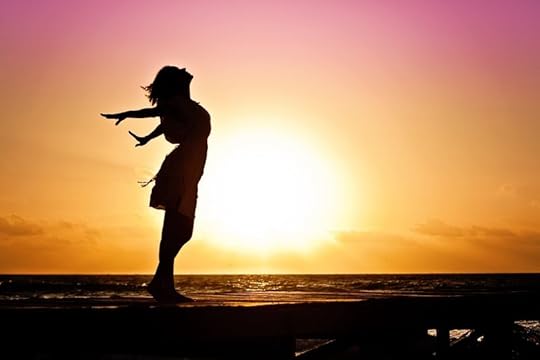 Photo by Jill Wellington | Source: Pexels
Photo by Jill Wellington | Source: PexelsSo, what is the upside of emotional bravery? For one thing, it enables us to have closer, more meaningful relationships. We have more life satisfaction. We get to be our authentic selves, which decreases our stress and increases our happiness. We’re more able to find our true community and as a result, we can experience a greater sense of belonging.
As scary as it can be to practice it, emotional courage offers a potentially huge payoff. It can lead to greatly improved mental health and physical well-being. Decreased stress and increased happiness has a direct impact on our overall quality of life.
So, I invite everyone to think about how to be braver, emotionally. I invite everyone to try doing one thing that’s a bit scary or risky on a feeling level.
Vulnerability: the path to genuine connection Photo by mododeolhar | Source: Pexels
Photo by mododeolhar | Source: PexelsAnd you should know that if you’re scared of being misunderstood or judged or rejected, remember that being more vulnerable is a great test of the people around you. If you show them your real thoughts and feelings and they don’t get you or they reject you, it’s important information about them.
As long as you understand that the other person’s reaction to you is about them, not you, it’s less painful if they reject you. And as long as you understand that if they judge you or criticize you, it’s their problem, not yours, you can use these experiences as powerful opportunities for learning.
Being more open emotionally can help you see who your real friends are and who are merely frenemies. It can help you to walk away from anyone who isn’t able to accept you for exactly who you are.
Emotional bravery: the courage to be our authentic selves Photo by Abi Jacob | Source: Pexels
Photo by Abi Jacob | Source: PexelsIt takes a lot less effort to just be ourselves. It’s a lot more fun to be genuine. It’s a drag, constantly trying to be the way we think other people want us to be. Being emotionally brave enables us to waste a lot less time and energy on people-pleasing.
And people-pleasing is guaranteed to never make us happy. When we try to be what others want they might enjoy our pleasing persona, but they don’t get to see who we really are. We aren’t being loved for our true selves. We expend all that effort but we’re left exhausted and resentful and devoid of genuine affection.
The only way to be loved for our authentic selves is to show people who we are. Yes, some of them might not like us or want us, but we will know for certain that the love we’re receiving from those who stick around is the real thing. And that is very gratifying.
Being emotionally brave means never having to worry whether the people in our lives care about us or not. And that is very reassuring.
Emotional courage isn’t easy but clearly, it’s worth it. Why not give it a try?
______
Sign up here for my free bi-weekly wellness newsletter that brings you fresh, thought-provoking content.
Subscribe to my YouTube Channel where you’ll learn simple tips for taking the best care of yourself and your loved ones.
Tune in to my Ruthless Compassion Podcast where I go in-depth about topics like mental health, trauma, and loneliness.
if(window.strchfSettings === undefined) window.strchfSettings = {};window.strchfSettings.stats = {url: "https://marciasirotamd.storychief.io/... "Emotional Bravery is Stronger than Physical Courage",id: "84fb0907-fb13-4676-8158-d29510e9b589"};(function(d, s, id) {var js, sjs = d.getElementsByTagName(s)[0];if (d.getElementById(id)) {window.strchf.update(); return;}js = d.createElement(s); js.id = id;js.src = "https://d37oebn0w9ir6a.cloudfront.net... = true;sjs.parentNode.insertBefore(js, sjs);}(document, 'script', 'storychief-jssdk'))
The post Emotional Bravery is Stronger than Physical Courage appeared first on Marcia Sirota.
June 29, 2023
Being Brave
When we think about what it means to be brave, we often think about taking physical risks, but there’s another type of courage we can consider: emotional bravery.
Being brave this way means being open and vulnerable. It means allowing people to really see you, thereby risking rejection, misunderstanding, and disapproval.
 Good Vibes Be Positive Concept | Photographer: rawpixel.com | Copyright: Rawpixel Ltd.Emotional bravery
Good Vibes Be Positive Concept | Photographer: rawpixel.com | Copyright: Rawpixel Ltd.Emotional braveryFor many people, it’s a lot easier to be physically brave than it is to be emotionally courageous. They’d rather risk having a limb broken than having their heart broken.
This is probably due to the abundance of support for people who have been physically injured and the dearth of emotional support for people who are experiencing emotional pain.
It takes courage to be vulnerable Photo by Liza Summer | Source: Pexels
Photo by Liza Summer | Source: PexelsThere’s also a tremendous stigma associated with emotional suffering. A grown man can whine and moan about having a head cold and nobody scoffs, but if he even mentions his emotional struggles, he’s more often than not looked at with scorn.
For that reason, it requires a double dose of emotional courage to be vulnerable. We need to brave public opinion at the same time as we’re taking our emotional risks.
The upside of being emotionally brave Photo by Jill Wellington | Source: Pexels
Photo by Jill Wellington | Source: PexelsSo, what is the upside of emotional bravery? For one thing, it enables us to have closer, more meaningful relationships. We have more life satisfaction. We get to be our authentic selves, which decreases our stress and increases our happiness. We’re more able to find our true community and as a result, we can experience a greater sense of belonging.
As scary as it can be to practice it, emotional courage offers a potentially huge payoff. It can lead to greatly improved mental health and physical well-being. Decreased stress and increased happiness has a direct impact on our overall quality of life.
So, I invite everyone to think about how to be braver, emotionally. I invite everyone to try doing one thing that’s a bit scary or risky on a feeling level.
Vulnerability: the path to genuine connection Photo by mododeolhar | Source: Pexels
Photo by mododeolhar | Source: PexelsAnd you should know that if you’re scared of being misunderstood or judged or rejected, remember that being more vulnerable is a great test of the people around you. If you show them your real thoughts and feelings and they don’t get you or they reject you, it’s important information about them.
As long as you understand that the other person’s reaction to you is about them, not you, it’s less painful if they reject you. And as long as you understand that if they judge you or criticize you, it’s their problem, not yours, you can use these experiences as powerful opportunities for learning.
Being more open emotionally can help you see who your real friends are and who are merely frenemies. It can help you to walk away from anyone who isn’t able to accept you for exactly who you are.
The courage to be our authentic selves Photo by Abi Jacob | Source: Pexels
Photo by Abi Jacob | Source: PexelsIt takes a lot less effort to just be ourselves. It’s a lot more fun to be genuine. It’s a drag, constantly trying to be the way we think other people want us to be. Being emotionally brave enables us to waste a lot less time and energy on people-pleasing.
And people-pleasing is guaranteed to never make us happy. When we try to be what others want they might enjoy our pleasing persona, but they don’t get to see who we really are. We aren’t being loved for our true selves. We expend all that effort but we’re left exhausted and resentful and devoid of genuine affection.
The only way to be loved for our authentic selves is to show people who we are. Yes, some of them might not like us or want us, but we will know for certain that the love we’re receiving from those who stick around is the real thing. And that is very gratifying.
Being emotionally brave means never having to worry whether the people in our lives care about us or not. And that is very reassuring.
Emotional courage isn’t easy but clearly, it’s worth it. Why not give it a try?
______
Sign up here for my free bi-weekly wellness newsletter that brings you fresh, thought-provoking content.
Subscribe to my YouTube Channel where you’ll learn simple tips for taking the best care of yourself and your loved ones.
Tune in to my Ruthless Compassion Podcast where I go in-depth about topics like mental health, trauma, and loneliness.
if(window.strchfSettings === undefined) window.strchfSettings = {};window.strchfSettings.stats = {url: "https://marciasirotamd.storychief.io/... "Being Brave",id: "84fb0907-fb13-4676-8158-d29510e9b589"};(function(d, s, id) {var js, sjs = d.getElementsByTagName(s)[0];if (d.getElementById(id)) {window.strchf.update(); return;}js = d.createElement(s); js.id = id;js.src = "https://d37oebn0w9ir6a.cloudfront.net... = true;sjs.parentNode.insertBefore(js, sjs);}(document, 'script', 'storychief-jssdk'))
The post Being Brave appeared first on Marcia Sirota.
Being Brave
When we think about what it means to be brave, we often think about taking physical risks, but there’s another type of courage we can consider: emotional bravery.
Being brave this way means being open and vulnerable. It means allowing people to really see you, thereby risking rejection, misunderstanding, and disapproval.
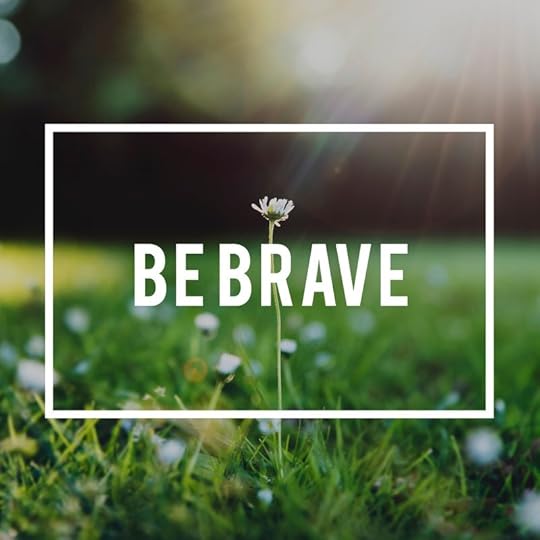 Good Vibes Be Positive Concept | Photographer: rawpixel.com | Copyright: Rawpixel Ltd.Emotional bravery
Good Vibes Be Positive Concept | Photographer: rawpixel.com | Copyright: Rawpixel Ltd.Emotional braveryFor many people, it’s a lot easier to be physically brave than it is to be emotionally courageous. They’d rather risk having a limb broken than having their heart broken.
This is probably due to the abundance of support for people who have been physically injured and the dearth of emotional support for people who are experiencing emotional pain.
It takes courage to be vulnerable Photo by Liza Summer | Source: Pexels
Photo by Liza Summer | Source: PexelsThere’s also tremendous stigma associated with emotional suffering. A grown man can whine and moan about having a head cold and nobody scoffs, but if he even mentions his emotional struggles, he’s more often than not looked at with scorn.
For that reason, it requires a double dose of emotional courage to be vulnerable. We need to brave public opinion at the same time as we’re taking our emotional risks.
The upside of being emotionally brave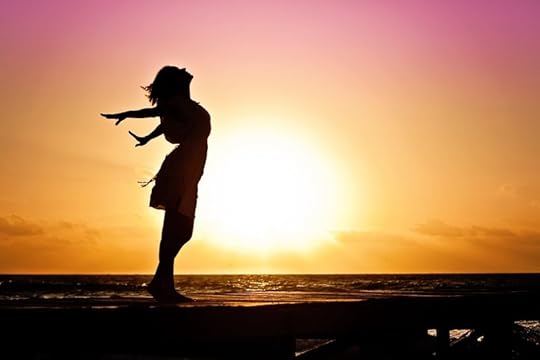 Photo by Jill Wellington | Source: Pexels
Photo by Jill Wellington | Source: PexelsSo, what is the upside of emotional bravery? For one thing, it enables us to have closer, more meaningful relationships. We have more life satisfaction. We get to be our authentic selves, which decreases our stress and increases our happiness. We’re more able to find our true community and as a result, we can experience a greater sense of belonging.
As scary as it can be to practice it, emotional courage offers a potentially huge payoff. It can lead to greatly improved mental health and physical well-being. Decreased stress and increased happiness has a direct impact on our overall quality of life.
So, I invite everyone to think about how to be braver, emotionally. I invite everyone to try doing one thing that’s a bit scary or risky on a feeling level.
Vulnerability: the path to genuine connection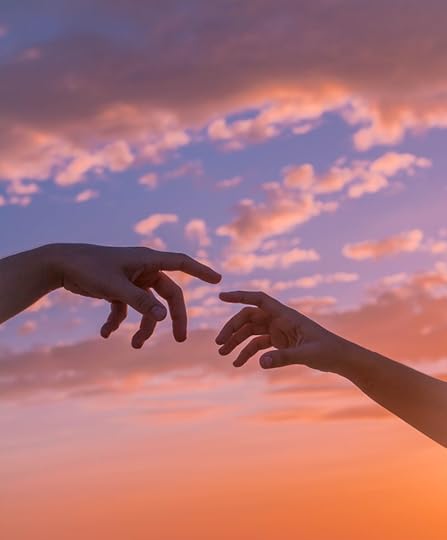 Photo by mododeolhar | Source: Pexels
Photo by mododeolhar | Source: PexelsAnd you should know that if you’re scared of being misunderstood or judged or rejected, remember that being more vulnerable is a great test of the people around you. If you show them your real thoughts and feelings and they don’t get you or they reject you, it’s important information about them.
As long as you understand that the other person’s reaction to you is about them, not you, it’s less painful if they reject you. And as long as you understand that if they judge you or criticize you, it’s their problem, not yours, you can use these experiences as powerful opportunities for learning.
Being more open emotionally can help you see who your real friends are and who are merely frenemies. It can help you to walk away from anyone who isn’t able to accept you for exactly who you are.
The courage to be our authentic selves Photo by Abi Jacob | Source: Pexels
Photo by Abi Jacob | Source: PexelsIt takes a lot less effort to just be ourselves. It’s a lot more fun to be genuine. It’s a drag, constantly trying to be the way we think other people want us to be. Being emotionally brave enables us to waste a lot less time and energy on people-pleasing.
And people-pleasing is guaranteed to never make us happy. When we try to be what others want they might enjoy our pleasing persona, but they don’t get to see who we really are. We aren’t being loved for our true selves. We expend all that effort but we’re left exhausted and resentful and devoid of genuine affection.
The only way to be loved for our authentic selves is to show people who we are. Yes, some of them might not like us or want us, but we will know for certain that the love we’re receiving from those who stick around is the real thing. And that is very gratifying.
Being emotionally brave means never having to worry whether the people in our lives care about us or not. And that is very reassuring.
Emotional courage isn’t easy but clearly, it’s worth it. Why not give it a try?
Sign up here for my free bi-weekly wellness newsletter that brings you fresh, thought-provoking content.
Subscribe to my YouTube Channel where you’ll learn simple tips for taking the best care of yourself and your loved ones.
Tune in to my Ruthless Compassion Podcast where I go in-depth about topics like mental health, trauma, and loneliness.
if(window.strchfSettings === undefined) window.strchfSettings = {};window.strchfSettings.stats = {url: "https://marciasirotamd.storychief.io/... "Being Brave",id: "84fb0907-fb13-4676-8158-d29510e9b589"};(function(d, s, id) {var js, sjs = d.getElementsByTagName(s)[0];if (d.getElementById(id)) {window.strchf.update(); return;}js = d.createElement(s); js.id = id;js.src = "https://d37oebn0w9ir6a.cloudfront.net... = true;sjs.parentNode.insertBefore(js, sjs);}(document, 'script', 'storychief-jssdk'))
The post Being Brave appeared first on Marcia Sirota.
June 5, 2023
Canada is burning – do people understand why?
All across Canada, wildfires are burning out of control. Six provinces and territories have been affected so far.
Tens of thousands of people have been displaced from their homes. An area equivalent to five million football fields has so far been destroyed.
This is a tragedy, but we need to understand the greater implications of these events. They exist within the context of global warming.
 Photographer: Matt Palmer | Source: UnsplashClimate change is making Canada burn
Photographer: Matt Palmer | Source: UnsplashClimate change is making Canada burnAs Canada gets hotter and drier, these fires will only get worse as the year's progress. And it won’t just be fired. As the polar ice caps melt, floods are becoming more frequent and more dangerous. These types of events will be inevitable if we don’t act now to save our planet.
I find it strange, the way we deal with the subject of climate change. Some of us continue to deny its existence, even as we flee our homes due to fires, floods, or other climate-related disasters.
Some of us want things to get better but we feel hopeless and helpless in the face of global warming.
 Photographer: Matt Palmer | Source: UnsplashPhotographer: Matt Palmer | Source: UnsplashOne simple solution is to exercise our civic duty
Photographer: Matt Palmer | Source: UnsplashPhotographer: Matt Palmer | Source: UnsplashOne simple solution is to exercise our civic dutyThere’s one simple thing we adults can do that could make an enormous difference in how life in Canada unfolds over the next few years. We can vote.
Voter turnout has been declining steadily over the last several years and that is very concerning to me. It’s the decisions our politicians are making that have the greatest impact on the environment. If we don’t vote, the power to effect positive change is no longer in our hands.
There’s a mayoral election coming up in Toronto in a few weeks. A few of the candidates have important things to say about combating climate change. As citizens, we need to inform ourselves and then vote for the candidate who best reflects our needs and interests in this regard.
 Photographer: Arnaud Jaegers | Source: UnsplashSome people ignore politics
Photographer: Arnaud Jaegers | Source: UnsplashSome people ignore politicsThe other day, I was having a conversation with a middle-aged man who had no idea about who our major politicians are. He explained that he doesn’t bother with politics. I wanted to tell him that politics is having an impact on him whether he bothers with it or not.
It astounds me that a grown adult can live in a world where things are falling apart around him and not recognize that there’s something he can do to make things better. And it’s frustrating to realize that this man is not in the minority.
We aren’t helpless and we don’t have to be hopeless when it comes to climate change. We don’t have to deny its existence and we don’t have to spend our days in willful ignorance.
At the minimum, we can vote for those politicians who will fight for a cleaner environment. And if we’re a bit more ambitious, we can get involved in social activism and work more directly for the cause.
 Photographer: Aiony Haust | Source: UnsplashWe need to get involved
Photographer: Aiony Haust | Source: UnsplashWe need to get involvedCanada is burning, melting, and flooding and it’s only going to get worse unless we get involved. Things can change for the better, but they won’t if we can’t even be bothered to vote.
Power comes in many shapes and forms. We have the power to create change by electing candidates who will protect the environment. Let’s start to exercise this power in the June 26 election and then continue to do so in all the local, provincial, and federal elections to come.
 Photographer: Clayton Cardinalli | Source: Unsplash
Photographer: Clayton Cardinalli | Source: UnsplashSign up here for my free bi-weekly wellness newsletter that brings you fresh, thought-provoking content.
Subscribe to my YouTube Channel where you’ll learn simple tips for taking the best care of yourself and your loved ones.
Tune in to my Ruthless Compassion Podcast where I go in-depth about topics like mental health, trauma, and loneliness.
if(window.strchfSettings === undefined) window.strchfSettings = {};window.strchfSettings.stats = {url: "https://marciasirotamd.storychief.io/... "Canada is burning - do people understand why?",id: "84fb0907-fb13-4676-8158-d29510e9b589"};(function(d, s, id) {var js, sjs = d.getElementsByTagName(s)[0];if (d.getElementById(id)) {window.strchf.update(); return;}js = d.createElement(s); js.id = id;js.src = "https://d37oebn0w9ir6a.cloudfront.net... = true;sjs.parentNode.insertBefore(js, sjs);}(document, 'script', 'storychief-jssdk'))
The post Canada is burning – do people understand why? appeared first on Marcia Sirota.
Marcia Sirota's Blog
- Marcia Sirota's profile
- 1 follower



